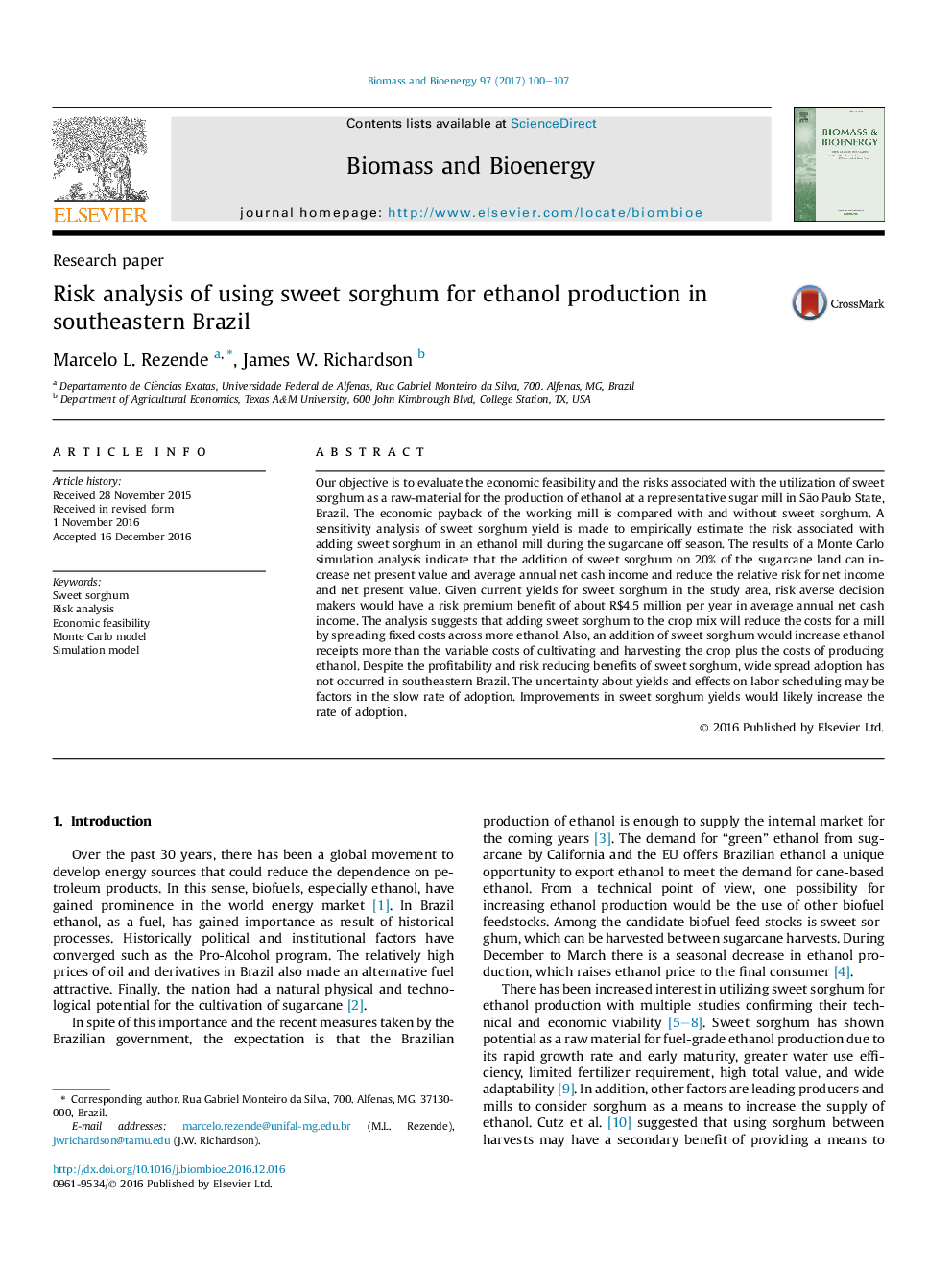ترجمه فارسی عنوان مقاله
تجزیه و تحلیل خطر استفاده از سورگوم شیرین برای تولید اتانول در جنوب شرقی برزیل
عنوان انگلیسی
Risk analysis of using sweet sorghum for ethanol production in southeastern Brazil
| کد مقاله | سال انتشار | تعداد صفحات مقاله انگلیسی |
|---|---|---|
| 109280 | 2017 | 8 صفحه PDF |
منبع

Publisher : Elsevier - Science Direct (الزویر - ساینس دایرکت)
Journal : Biomass and Bioenergy, Volume 97, February 2017, Pages 100-107
ترجمه کلمات کلیدی
سورگوم شیرین، تحلیل ریسک، امکان سنجی اقتصادی، مدل مونت کارلو، مدل شبیه سازی،
کلمات کلیدی انگلیسی
Sweet sorghum; Risk analysis; Economic feasibility; Monte Carlo model; Simulation model;

